Schengen Is Closing
Adelina Marini, November 23, 2015
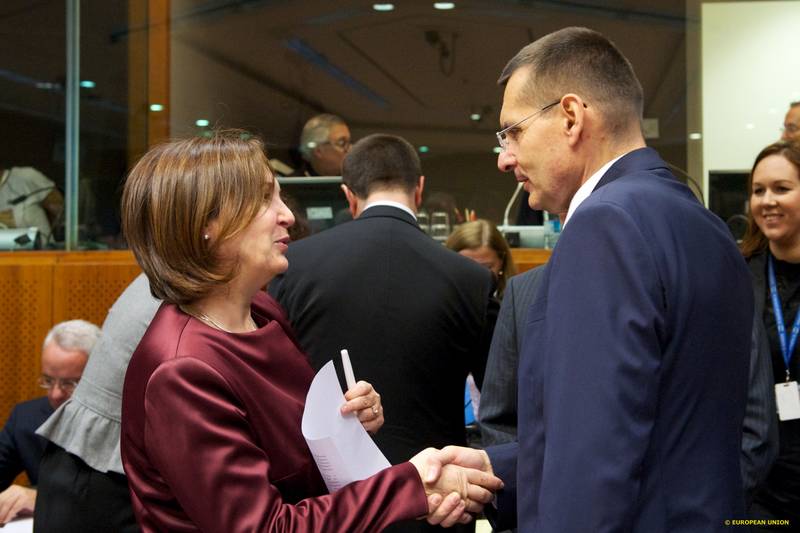 Until recently the main engine of European integration in the EU was the euro area. After the crisis, which started in 2009, significant changes of key EU legislation happened, even including minimal changes in the founding treaties. By the outbreak of the refugee crisis there was just one integration ship’s mast visible on the horizon – that of the euro area. The refugee crisis placed the very existence of the EU to a test. Although the threat is not over yet, there is a new integration ship visible on the horizon – that of Schengen. The reason for its appearance are the terrorist attacks in Paris from November 13th, when 130 people lost their lives and dozens of others were injured at several locations in the French capital. Schengen had centre stage in the disintegration forecasts because of the refugee crisis. The Paris attacks, however, changed the situation significantly. The demonstration of unprecedented solidarity with France and the French people opened the way for deepening of integration in the sphere of security and counter-terrorism. Within Schengen, however.
Until recently the main engine of European integration in the EU was the euro area. After the crisis, which started in 2009, significant changes of key EU legislation happened, even including minimal changes in the founding treaties. By the outbreak of the refugee crisis there was just one integration ship’s mast visible on the horizon – that of the euro area. The refugee crisis placed the very existence of the EU to a test. Although the threat is not over yet, there is a new integration ship visible on the horizon – that of Schengen. The reason for its appearance are the terrorist attacks in Paris from November 13th, when 130 people lost their lives and dozens of others were injured at several locations in the French capital. Schengen had centre stage in the disintegration forecasts because of the refugee crisis. The Paris attacks, however, changed the situation significantly. The demonstration of unprecedented solidarity with France and the French people opened the way for deepening of integration in the sphere of security and counter-terrorism. Within Schengen, however.
This became clear after the emergency meeting of the ministers of justice and home affairs (JHA) last Friday (November 20th). At it, a rare unity was demonstrated again, that the reply to terrorism must be European, not national. In the spirit of the European programme for security, announced by the European Commission last spring, this should be based on mutual trust. Surely, it is way too soon to pop the champagne for the next integration step, but the foundations are put in place by the Friday meeting. And this is a very bad news for those are outside Schengen not because they want to, but because they are not ready for it and because of lack of trust. The ministers requested several changes in key legislation like the treaty of Schengen and regarding Frontex. The ministers gave the EC the task of preparing a proposal for a targeted change of the code on Schengen borders, so that a new legal ground is secured for the implementation of systematic control of EU citizens, including biometric information checks.
Another of the ministers’ requests is for widening the European border agency Frontex’s mandate, so that it is allowed to participate actively in the fight against terrorism and organised crime. Besides, the Council wants Frontex to participate in the policing of external borders, but not all of them. In their conclusions, member states urge Frontex and Europol to aid members bordering the Western Balkans region in tightening control on the external borders so that smuggling of weapons is intercepted. There is also talk of establishing regional information exchange platforms with states from the Western Balkans regarding counter-terrorism work.
The message is more than clear – there is a lack of trust towards Bulgaria and Romania. The two states are outside Schengen, because they are both still under a mechanism for monitoring of their efforts in the fight against corruption, and in the case of Bulgaria organised crime as well. And while Romania is doing way better than Bulgaria, both states are blocked for Schengen in a package. There is one more piece of bad news in Friday’s conclusions. It has to do with information sharing among member states, much of which will be happening within the second generation of the Schengen Information System (SIS II). In the ministers’ conclusions on this subject it is under article 7 and has 8 sub-articles. All of which have to do with increasing cooperation among law-enforcement agencies of member states. They commit to a systematic exchange of information on alleged foreign terrorist fighters.
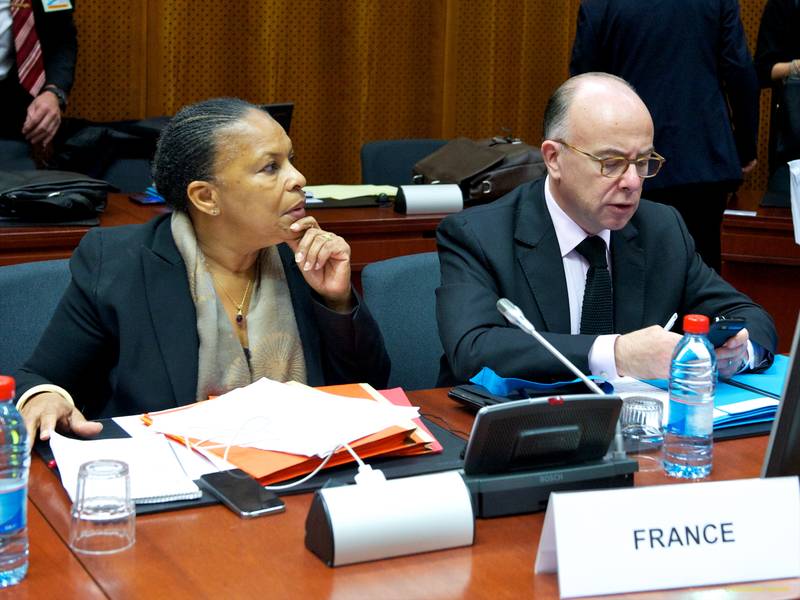 The fact that the Western Balkans entered the European field of vision is very good news. French Minister of Interior Bernard Cazeneuve made a special remark at the press conference after the meeting on Friday that the EU should fight the smuggling of weapons through the Balkans. He announced that he is working on this together with his German colleague Thomas de Maizière, who joined him on a tour of the region last summer. There is a special operation programme expected to be developed together with the Commission by the end of this year.
The fact that the Western Balkans entered the European field of vision is very good news. French Minister of Interior Bernard Cazeneuve made a special remark at the press conference after the meeting on Friday that the EU should fight the smuggling of weapons through the Balkans. He announced that he is working on this together with his German colleague Thomas de Maizière, who joined him on a tour of the region last summer. There is a special operation programme expected to be developed together with the Commission by the end of this year.
Chinese whispers between Brussels and Sofia
The conclusions, linked to Schengen, caused a discrepancy between facts and what was claimed by Deputy Prime Minister and Minister of Interior Rumyana Bachvarova and Minister of Justice Hristo Ivanov after the meeting. According to them, Bulgaria got treated as a Schengen member in these conclusions, which hardly is the case. The two of them quote an opinion of the legal service of the Council, which says that Bulgaria and Romania, having implemented all technical criteria for Schengen membership, are for all practical reasons treated as being part of Schengen. This is legally not true, because for the two of them to be treated as Schengen members, there needs to be a Council approval, which has not happened so far. According to an internal Bulgarian document, the term “Schengen borders” includes Bulgaria and Romania, because Schengen rules are being enforced along their external borders.
This is true with regard to external borders. The Schengen information system is working only in those states, which are members of the treaty of Schengen. These include several states, which are not EU members. The system, however, is not fully opened to Bulgaria, Croatia, Cyprus, Ireland, Romania, and Great Britain. Cyprus and Croatia are in a derogation, preparing for membership. At the moment Croatia’s membership application is being reviewed, with the country also being technically ready, because this was one of the EU accession requirements. Great Britain is using the system in the context of cooperation between law enforcement agencies, and Ireland is preparing for system integration at the Great Britain level.
The case of Bulgaria and Romania is somewhat different. The two states are able to use the system only to the level of Great Britain and Ireland, meaning only when it has to do with cooperation of law enforcement agencies and connected to external borders. This is not voluntary, as is the case with Great Britain and Ireland, but rather by appointment, for Bulgaria and Romania are not prepared for Schengen membership according to different member states. They will use SIS regarding external borders policing until a decision is made for lifting internal border control. And it is clear when this decision is going to be made – when the two states demonstrate irreversible results in the fight against corruption and organised crime. It is quite possible, due to increased panic fear of terrorist attacks, that joining Schengen becomes a much more demanding process.
The conclusions mention two levels of border control. One is at the external EU borders, which includes Bulgaria, Romania, Croatia, and the second is increased border control at the Schengen borders. This means that Schengen will turn into a border core, which will be entered after systematic checks of EU citizens as well and which will have much wider law enforcement agencies cooperation than with the rest. This outraged Croatian Deputy PM and Minister of Home Affairs Ranko Ostojić, according to whom the solution to the problem must be sought at the external borders, not the Schengen ones. This is a quite sensitive issue for Croatia, because at the moment Slovenia is completing the building of a wire fence at its border with Croatia. The closing-off of Schengen is already bearing fruit – Croatia has begun turning back migrants, who are considered not to meet 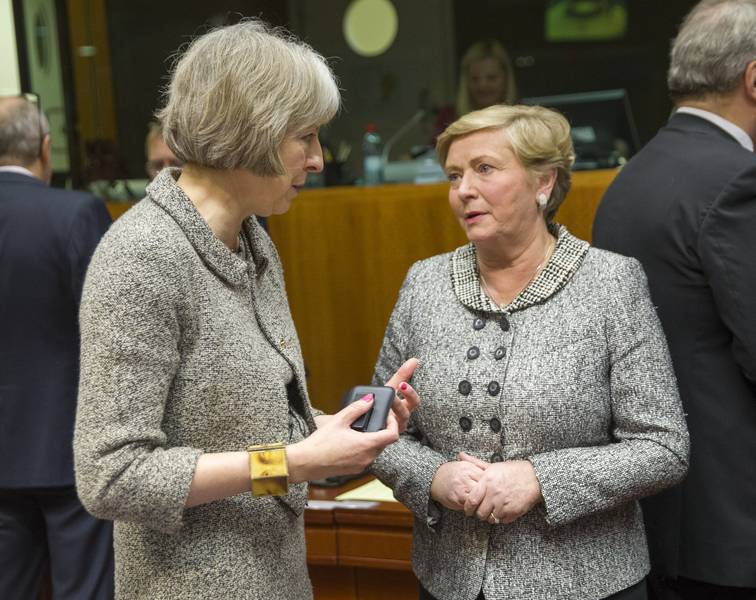 the requirements for international protection to Serbia. As a reaction to that Serbia and Macedonia have started to turn back migrants down the line.
the requirements for international protection to Serbia. As a reaction to that Serbia and Macedonia have started to turn back migrants down the line.
In other words, the claim that Bulgaria has access to the Schengen information System even now is only partially true.
Passenger data exchange
Another important step towards deepening of integration in the sphere of security covers all member states and regards gathering passenger records on inter-Union flights as well. The Council raises this as a priority, which is a complete change from current behaviour. The directive for passenger name records (PNR), collected by flight operators during reservation and booking of flight tickets, as well as flight check-in dates back to 2007 and expired with the coming to power of the Treaty of Lisbon. In 2011, the Commission filed its proposal again, but there has been no progress since, the European Parliament being the main hindrance. The Commission proposes that flight operators transfer data on passengers of international flights to a specialised unit in the country of departure or arrival. Member states are not to have immediate access to flight operators’ databases. It is to be granted upon request.
The problem between the Council and the EP is that the latter wants the term of allowed holding of this information to be just one month, while member states demand it is one year. French Minister of Interior Bernard Cazeneuve explained on Friday that one month is simply not serious. “Not a single European citizen can understand why the EP continues to block this dossier. PNR is absolutely vital to us”. Minister of Security of Luxembourg, which holds the Council’s rotating Presidency at the moment, stated that the deadline set by the Presidency for the adoption of this legislation by the end of the year remains an important objective. He added that it should also include internal European flights, which was agreed on by other ministers as well. According to Etienne Schneider, the regulation should not be limited to just trans-national crimes.
Besides that, the ministers committed to speeding-up their work on the full implementation and effective use of interconnectedness of national databases containing DNA, fingerprints, and automobile registrations, the so called Prüm Treaty, which only applies to several member states – Belgium, Bulgaria, Germany, Spain, France, Luxembourg, the Netherlands, Austria, Slovenia, Slovakia, Italy, Finland, Portugal, Romania, and Sweden. The ministers have appointed the EC to prepare a proposal for the provision of the required resources to Europol, so that the new anti-terrorist centre can cross-reference its data with the one from SIS II. This will be the point of intersection between information exchange within Schengen and outside it. The Commission is also appointed to 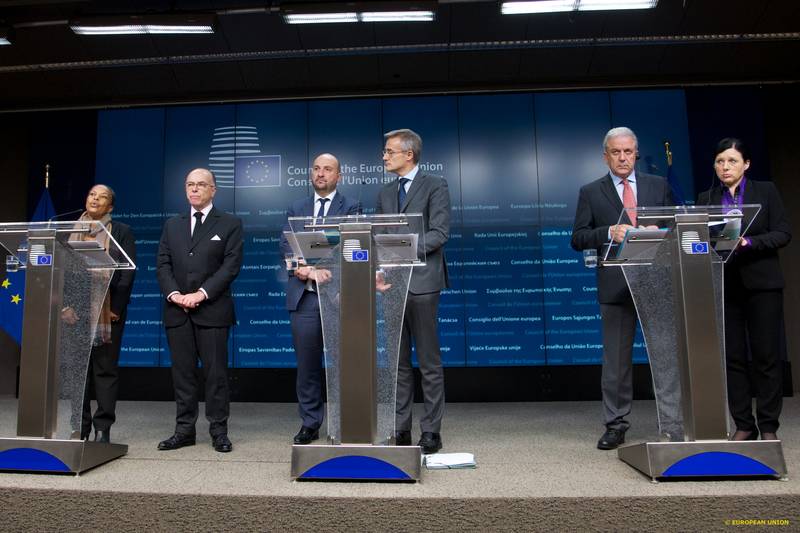 investigate the operational compatibility of different databases, especially within SIS II, Interpol, and its system for tracking contraband guns iARMS.
investigate the operational compatibility of different databases, especially within SIS II, Interpol, and its system for tracking contraband guns iARMS.
The conclusion of this meeting is that instead of falling apart, Schengen will rather become more integrated. As usual in moments of crisis, there were very bold steps. One such was made by EU Commissioner for Migration and Home Affairs Dimitris Avramopoulos (Greece, EPP), who stated that it is time for the next step to be taken, namely the creation of a European intelligence agency – an idea proposed by the leader of liberals in the EP Guy Verhofstadt (ALDE, Belgium). The ministers were restrained at the idea, although they rather accept its intergovernmental variation – a more intensive cooperation between intelligence agencies. It is certainly important to remember that although much has been done after the financial and economic crisis, flexibility at implementing rules at the moment, meaning not implementing them, is considerable. So every integration move is big while the need for it remains. After that the flexibility of rules comes in play. Regardless of that, news are bad for Bulgaria.
Translated by Stanimir Stoev
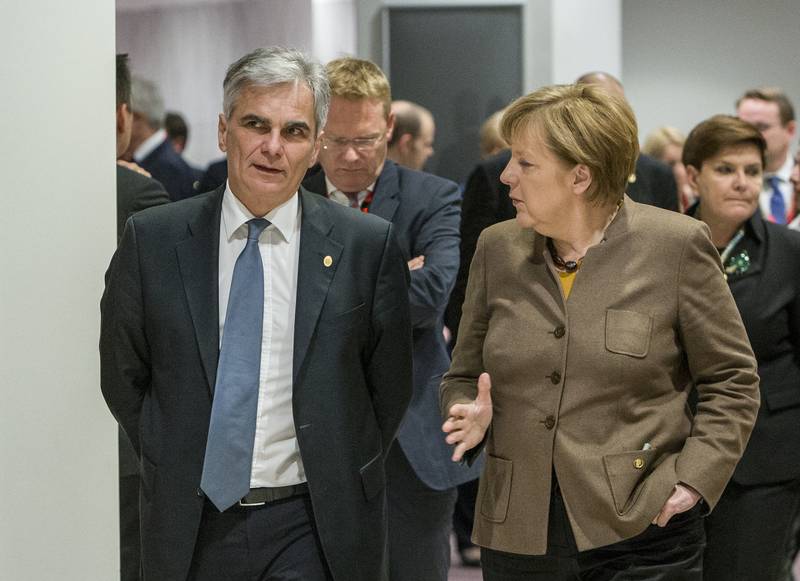 Werner Faymann, Angela Merkel | © Council of the EU
Werner Faymann, Angela Merkel | © Council of the EU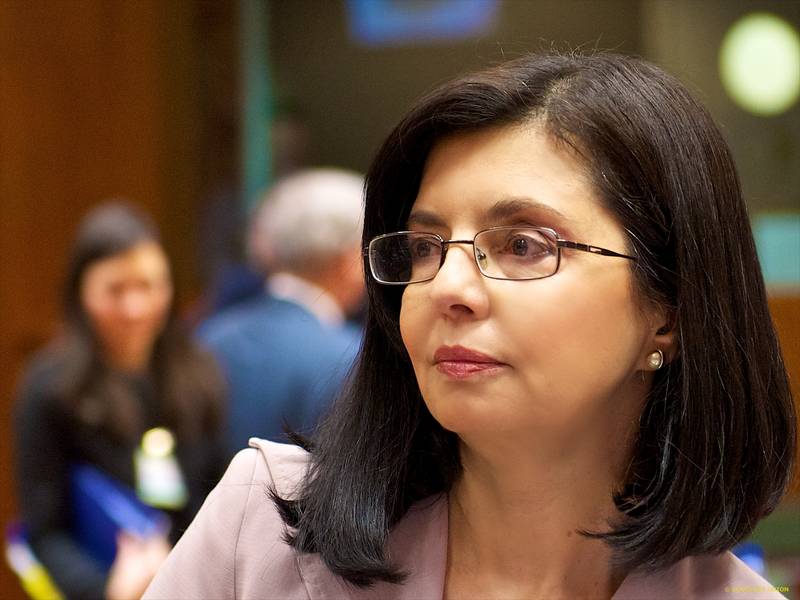 Meglena Kuneva | © Council of the EU
Meglena Kuneva | © Council of the EU Meglena Kuneva | © Council of the EU
Meglena Kuneva | © Council of the EU Bakir Izetbegovic, Andrej Plenkovic | © Council of the EU
Bakir Izetbegovic, Andrej Plenkovic | © Council of the EU Aleksandar Vucic, Recep Tayyip Erdogan | © Serbian Presidency
Aleksandar Vucic, Recep Tayyip Erdogan | © Serbian Presidency Jean-Claude Juncker, Zoran Zaev | © European Commission
Jean-Claude Juncker, Zoran Zaev | © European Commission